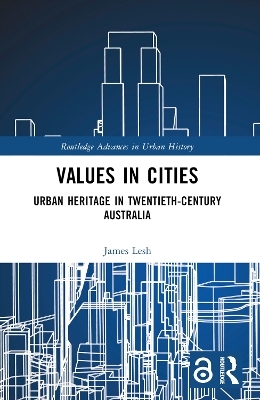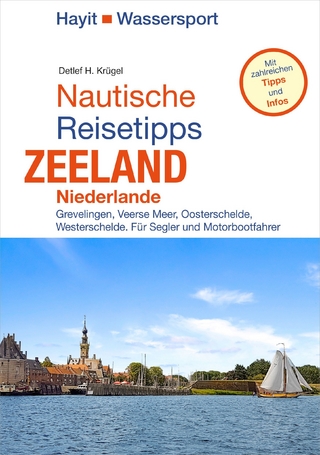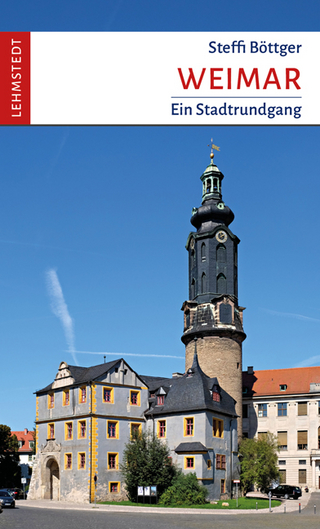
Values in Cities
Urban Heritage in Twentieth-Century Australia
Seiten
2024
Routledge (Verlag)
978-0-367-37106-7 (ISBN)
Routledge (Verlag)
978-0-367-37106-7 (ISBN)
This benchmark study in architectural, urban, and planning heritage conservation offers the first extended study of the professional, governance, management, and community processes, which addressed the growing value attributed to the urban historic environment.
Examining urban heritage in twentieth-century Australia, James Lesh reveals how evolving ideas of value and significance shaped cities and places. Over decades, a growing number of sites and areas were found to be valuable by communities and professionals. Places perceived to have value were often conserved. Places perceived to lack value became subject to modernisation, redevelopment, and renewal. From the 1970s, alongside strengthened activism and legislation, with the innovative Burra Charter (1979), the values-based model emerged for managing the aesthetic, historic, scientific, and social significance of historic environments. Values thus transitioned from an implicit to an overt component of urban, architectural, and planning conservation. The field of conservation became a noted profession and discipline. Conservation also had a broader role in celebrating the Australian nation and in reconciling settler colonialism for the twentieth century. Integrating urban history and heritage studies, this book provides the first longitudinal study of the twentieth-century Australian heritage movement. It advocates for innovative and reflexive modes of heritage practice responsive to urban, social, and environmental imperatives. As the values-based model continues to shape conservation worldwide, this book is an essential reference for researchers, students, and practitioners concerned with the past and future of cities and heritage.
The Foreword and Chapter 1/Introduction of this book are available for free in PDF format as Open Access from the individual product page at www.routledge.com. It has been made available under a Creative Commons Attribution-Non Commercial-No Derivatives 4.0 license.
Examining urban heritage in twentieth-century Australia, James Lesh reveals how evolving ideas of value and significance shaped cities and places. Over decades, a growing number of sites and areas were found to be valuable by communities and professionals. Places perceived to have value were often conserved. Places perceived to lack value became subject to modernisation, redevelopment, and renewal. From the 1970s, alongside strengthened activism and legislation, with the innovative Burra Charter (1979), the values-based model emerged for managing the aesthetic, historic, scientific, and social significance of historic environments. Values thus transitioned from an implicit to an overt component of urban, architectural, and planning conservation. The field of conservation became a noted profession and discipline. Conservation also had a broader role in celebrating the Australian nation and in reconciling settler colonialism for the twentieth century. Integrating urban history and heritage studies, this book provides the first longitudinal study of the twentieth-century Australian heritage movement. It advocates for innovative and reflexive modes of heritage practice responsive to urban, social, and environmental imperatives. As the values-based model continues to shape conservation worldwide, this book is an essential reference for researchers, students, and practitioners concerned with the past and future of cities and heritage.
The Foreword and Chapter 1/Introduction of this book are available for free in PDF format as Open Access from the individual product page at www.routledge.com. It has been made available under a Creative Commons Attribution-Non Commercial-No Derivatives 4.0 license.
James Lesh is an urban historian and Lecturer in Cultural Heritage and Museum Studies at Deakin University in Melbourne, Australia. His research explores the theory and practice of heritage conservation in the twentieth and twenty-first centuries.
Foreword Graeme Davison 1. Introduction: Conservation, Cities and Values 2. Settler-Colonial Foundations, 1900s–30s 3. The Establishment of the National Trust, 1940s–60s 4. The Modern Field, 1950s–60s 5. The Heritage Movement, 1960s–70s 6. National Estate Visions, 1970s 7. Professionalisation and the Burra Charter, 1970s 8. Frameworks, Tools, Criteria, 1980s–90s 9. Changing Cities, Evolving Values, 1980s–90s 10. Conclusion: The Past and Future of Conservation. Afterword Sharon Veale
| Erscheinungsdatum | 15.06.2022 |
|---|---|
| Reihe/Serie | Routledge Advances in Urban History |
| Zusatzinfo | 6 Tables, black and white; 30 Halftones, black and white; 30 Illustrations, black and white |
| Verlagsort | London |
| Sprache | englisch |
| Maße | 152 x 229 mm |
| Gewicht | 453 g |
| Themenwelt | Reisen ► Reiseführer |
| Geisteswissenschaften ► Geschichte | |
| Sozialwissenschaften ► Soziologie | |
| ISBN-10 | 0-367-37106-5 / 0367371065 |
| ISBN-13 | 978-0-367-37106-7 / 9780367371067 |
| Zustand | Neuware |
| Haben Sie eine Frage zum Produkt? |
Mehr entdecken
aus dem Bereich
aus dem Bereich
Grevelingen, Veerse Meer, Oosterschelde, Westerschelde
Buch (2023)
Mundo Marketing (Verlag)
19,95 €


